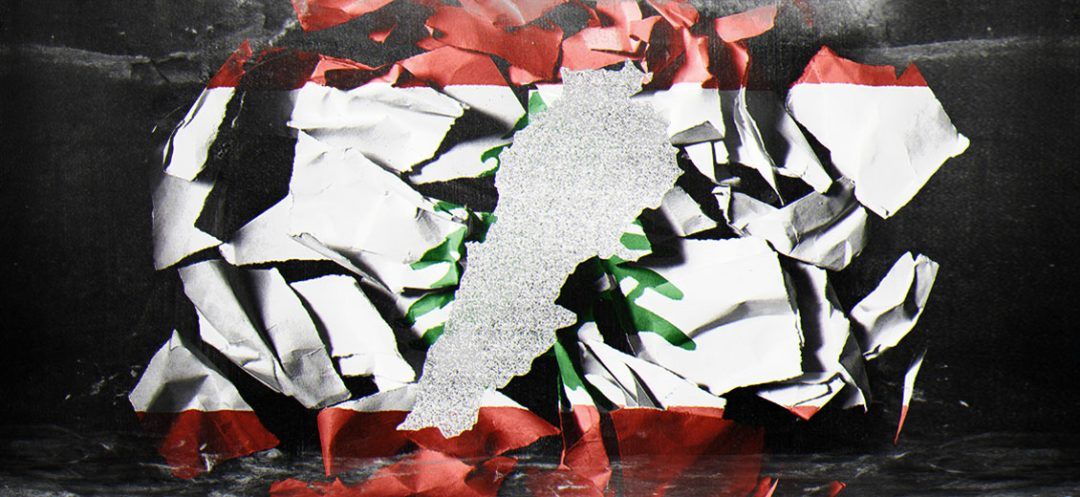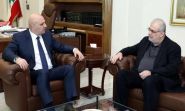
Is Lebanon's Fate Truly Tragic? Not Necessarily. Certainly battered by history, but condemned? Not if the Lebanese people recognize their role in the current disorder. From the early days of this noble national vocation, initiated by Patriarch Howayek during negotiations with the Third French Republic, he criticized the clientelism and favoritism that undermined the Administration and public institutions. He urged the political class of that era to prioritize the public interest over personal gains.
He wrote, “How rare are the leaders in our country who are truly impartial, free from favoritism and solely focused on merit?” He pointed out that far more common are those who act otherwise, favoring their relatives, courtiers, and friends with well-paid positions at the expense of the more deserving1.
Did the founder of Greater Lebanon speak in vain? Was it for nothing that the Maronites, professing Christianity, held the presidency while seeking to enrich themselves through intrigue? Was it futile to entrust a national project to a Maronite Church burdened by clericalism and disconnected from its pioneering vocation of unity? Was it a mistake to assign a newly established country, deeply rooted in history, to disparate communities unable to self-organize?
Certainly not! Building a nation with a fledgling State was already a daunting task on the human level. On top of this, the historical vicissitudes—the creation of Israel, the Arab nationalism, the emergence of Palestinian resistance, and the rise of Sunni and Shiite fundamentalisms—each of these forces, opposing state-building, has profoundly shaped Lebanon.
By launching the slogan “Lebanon first” in the 1990s, following the civil war, the Sunnis showed they had internalized the deep-seated aspiration of the Christians, who had opposed the armed Palestinians, believing that the path to Palestine went through Jounieh. They understood that Lebanon’s unity must take precedence over Arab unity.
The Maronites, for their part, had learned during the civil war to welcome others while remaining vigilant. A profound analysis proves that all Lebanese have struggled to understand and formulate their own history, integrating it into Lebanon’s broader narrative amidst frequent crises, often with scant guidance in their school textbooks.
After the Maronites and Sunnis, the Shiites are now seeking a necessary synthesis for coexistence. Ali Fayad, a Hezbollah representative, has recently contributed to this effort. What Ali Fayad and part of the Shiite community are expressing today is being clarified by Tarek Mitri. In a book honoring Father Jean Corbon, author of the prophetic work “L’Église des Arabes” or The Church of the Arabs, the former Minister of Culture asserts: “Despite his unwavering confidence, Father Corbon was aware of the dangers facing the Church and the witness it was called to provide, amidst the devastating choice between ghettoization or emigration. The temptation to address threats, whether real or exaggerated, by retreating—leading to emigration or isolation—is becoming increasingly common. For some, the drive for liberation is fueled by the pursuit of success in the economic sector or the expertise in science and technology. This approach fosters the hope that the economic sphere remains secular. The Church might leverage its loyalty to existing regimes to reposition itself, with varying degrees of realism, as a mediator between the Arab world and the West.”
Schematically, MP Ali Fayad wishes to establish Lebanon’s Christians within this “secular” and apolitical sphere of economics, science, and technology as an alternative to “divorce” and/or emigration. In return, Christians should be mindful of the Shiite community’s geopolitical concerns, offer reassurances, and provide a political leeway.
Evidently, Hezbollah, supported by Iran, is seeking to impose a cultural and political agenda on Lebanon, established in 1920, that conflicts with its historical vocation. This agenda represents a theocracy trying to coexist with a parliamentary democracy. In a country where the Church plays an active role, these two political, cultural, and religious systems inevitably clash and weaken each other. Although there may be no outright war between them, their polarization undermines democratic institutions and fosters a climate of disorder and fragmentation at all levels, as is evident.
To grasp a country as unique as Lebanon, one must rise above community-based apprehensions. Contemplating Lebanon is looking beyond narrow perspectives and particular interests, aiming to achieve the common good—an exercise that only Pope John Paul II has so far successfully accomplished by describing Lebanon as “a message of pluralism and tolerance for both East and West.”
[1] Pastoral Letter of 1930, translated by Fr. Salim Daccache S.J., quoted in his Saint Joseph's Day address on March 19, 2020.
Read more



Comments